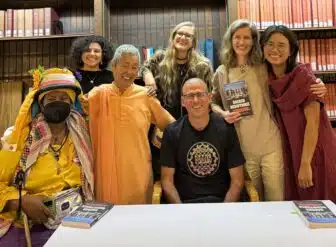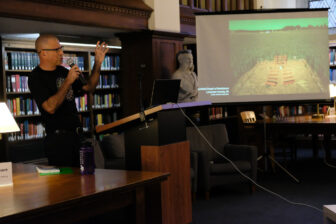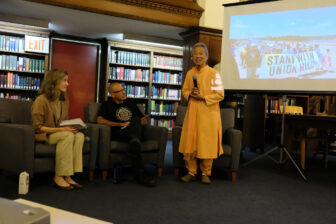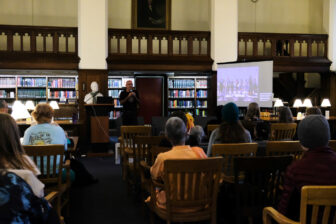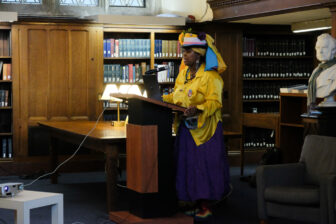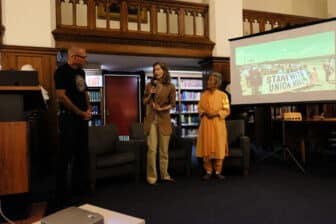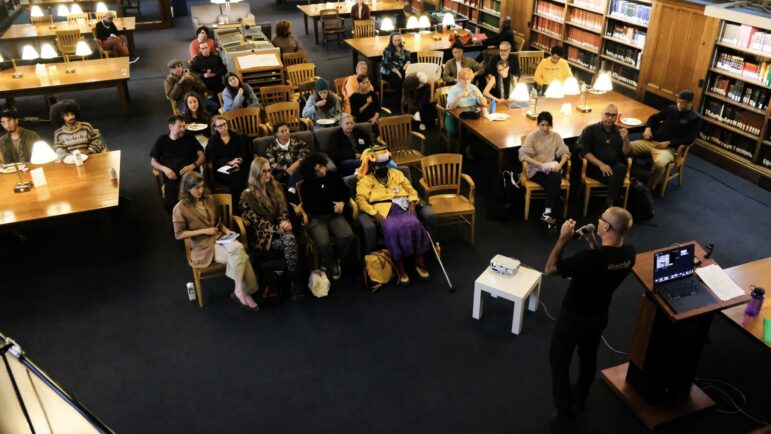
A Movement Grounded in Love: CEE Hosts “Sacred Resistance” Book Dialogue
“What are you fighting for? What are you fighting against?”
Scholar-activist Mark Clatterbuck asked these questions when introducing “Sacred Resistance: Eco-Activism and the Rise of New Spiritual Communities” (Orbis Books, 2025) on Tuesday, October 21, at a dialogue in Union Theological Seminary’s Burke Library. Nearly 40 people crowded into the library to hear about the collection, which is built around five case studies of spiritually-based eco-activism written by activists leading the efforts. The case studies range from Hawaii, to Standing Rock, to Pennsylvania, and encompass the efforts of Indigenous communities, Quakers, Roman Catholic nuns, yogis, Baptists, and interspiritual activists to achieve justice.
Concerns for the environment and racial justice come together. It's a movement grounded in love.
Mark Clatterbuck
In her welcome, Executive Director Karenna Gore praised Clatterbuck for his leadership in “fighting fossil fuel structure buildout” in Pennsylvania and described the collected studies as “heartening, satisfying, inspiring.” CEE Research Intern Xiao Ma, a friend of Clatterbuck’s family, helped organize the gathering and introduced Clatterbuck.
Clatterbuck, the co-founder of Lancaster Against Pipelines and the group’s non-violent mass action coordinator from 2014-2019, is a faculty member at Montclair State University in New Jersey. He dedicated the book to his son, Ashton, an environmental justice and transgender rights activist and a central part of the struggle, who took his own life in 2024.
The stories in this collection, Clatterbuck said, “highlight key themes that ties these movements together.” He noted that “folks who were explicitly not religious” found something invaluable in this work and found ways to work together “beyond traditions.” He extracted five key principles from these studies: the sacred nature of activism, and the Earth;: a powerful ritual infusion into direct action; a commitment to nonviolence; an intersectional theory of justice to confront “overlapping systems of repression”; and the creation of new spiritual communities.
“Concerns for the environment and racial justice come together,” Clatterbuck said. “It’s a movement grounded in love.”

